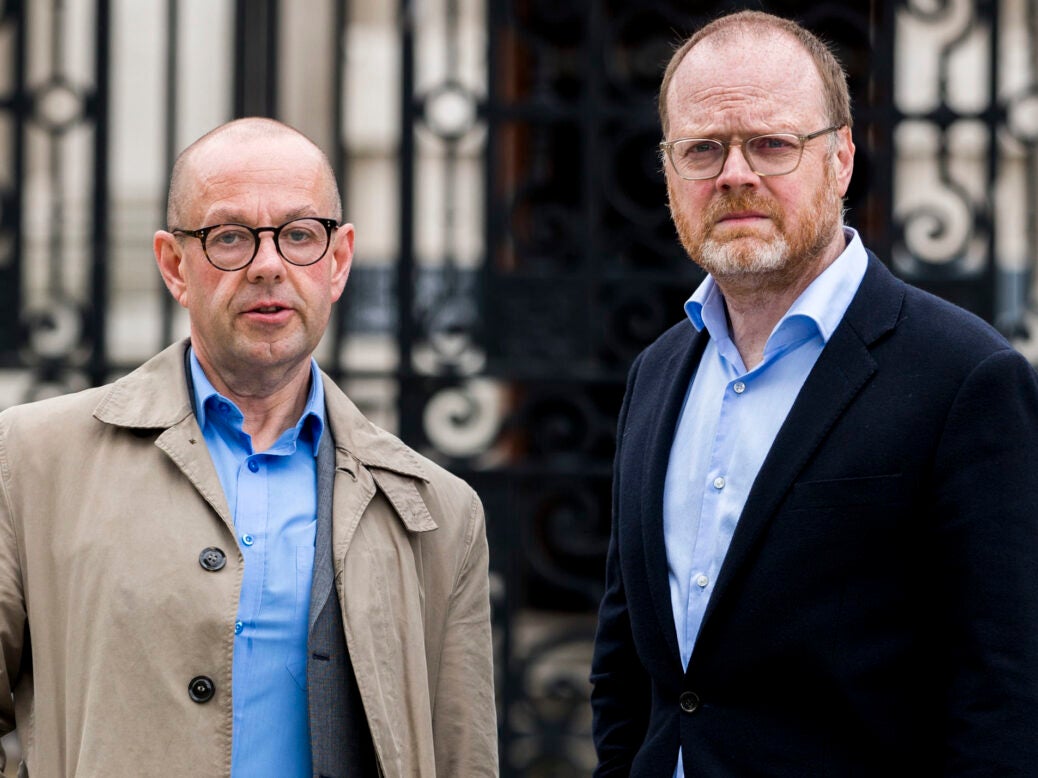
Police in Northern Ireland monitored the phone activity of a journalist who was one of two wrongfully arrested over material that appeared in a documentary about a Troubles massacre, it has been revealed.
Belfast-based Barry McCaffrey said it was “shocking” to discover the Regulation of Investigatory Powers Act 2000 (RIPA) had been used by the Police Service of Northern Ireland (PSNI) to access his phone records and data in 2013.
More details will be revealed at an Investigatory Powers Tribunal hearing later this year, although it is not yet clear whether this will be held in public or private, or if it will be in Belfast or London.
RIPA was the pre-2016 surveillance regime through which police accessed journalists’ call records, often enabling them to identify confidential sources. In 2014 Press Gazette launched the successful Save Our Sources campaign, helping to secure a change in the law meaning police could not do so without approval from a judge.
McCaffrey and fellow journalist Trevor Birney were arrested and had their homes raided in 2018 over an allegation they had stolen confidential material used in their 2017 film No Stone Unturned, which revealed for the first time the names of Loyalist paramilitaries suspected of shooting dead six men at a bar in Loughinisland, County Down, in 1994.
The police investigation was dropped after the journalists had been left on police bail for ten months. They then took a judicial review case to the High Court in Belfast where the “inappropriate” search warrants that were used for the raid were quashed.
In 2020 the Police Service of Northern Ireland agreed to pay damages totalling £875,000: £600,000 to documentary-maker Fine Point Films, £150,000 to Birney and £125,000 to McCaffrey.
Discovery of RIPA used to access journalist records
McCaffrey and Birney lodged a complaint with the UK Investigatory Powers Tribunal four years ago at the end of the judicial review, and have now been told via an interim order that authorisation was made under Section 22 of RIPA for the “collection of communications data” in 2013.
The journalists believe this must have happened after McCaffrey contacted the PSNI for comment about a story into alleged corruption, as an attempt to identify his whistleblower.
The next hearing will determine the lawfulness of that authorisation. The journalists’ lawyers have also asked the IPT to shed light on any surveillance around the production and release of No Stone Unturned and the aftermath leading up to their wrongful arrests. Further incidents could yet be unveiled involving either McCaffrey or Birney, or both, they believe.
Last year the UK Government admitted that RIPA was unlawful when it acknowledged section 8, relating to interception warrants, was “not compliant” with Article 8 (privacy) or, in relation to treatment of confidential journalistic material, Article 10 (freedom of expression) of the European Convention on Human Rights.
RIPA was replaced in 2016 by the Investigatory Powers Bill, dubbed the Snoopers’ Charter and itself found to be unlawful in part.
‘Egregious attack on the freedom of the press’
McCaffrey said of the new discovery: “To find out that the PSNI accessed my phone data in 2013 without my permission was a shocking discovery for Trevor and myself. I had no idea until very recently that my phone had been compromised in this way.
“Once again, we find the PSNI treating journalists as the enemy. There appears to be a very worrying culture within the PSNI towards journalists in Northern Ireland, one in which we are seen as criminals to be pursued.
“All journalists working in Northern Ireland have to ask themselves if they too have been subjected to similar treatment and the impact on press freedom.
“We had hoped our days in court were behind us, but we are determined to get to the truth of the PSNI actions and to hold those responsible to account.”
Birney said the pair had realised during their judicial review that they had been under surveillance before their arrests, but had no idea McCaffrey’s phone had been monitored as far back as 2013.
“Journalists in Northern Ireland learn to work under the suspicion that the PSNI or other intelligence agencies are monitoring their phone calls,” Birney said. “To discover the PSNI covertly monitoring Barry’s phone data while he worked for The Detail is a shocking and very disturbing development in our case.
“What we’ve been told amounts to an egregious attack on the freedom of the press by the PSNI. We hope the Investigatory Powers Tribunal is both an open hearing and will be able to get to the truth of what the PSNI have been doing to journalists over the past decade and more.”
McCaffrey’s lawyer said the alleged unlawful accessing of journalistic material “is not only a matter of significance for my client, but a matter of huge public interest as we seek to ensure the freedom of our press and the rights of journalists”.
Amnesty International and Northern Ireland’s Committee on the Administration of Justice have jointly written to the Northern Ireland Policing Board calling for an investigation of PSNI’s use of RIPA powers.
Amnesty International’s Northern Ireland programme director Patrick Corrigan said: “The police have serious questions to answer about the secret surveillance of journalists in Northern Ireland. Snooping on a journalist’s phone is potentially a serious breach of human rights.”
A PSNI spokesperson said: “As the matter is subject to ongoing legal proceedings, it would be inappropriate to make any comment at this time.”
Email pged@pressgazette.co.uk to point out mistakes, provide story tips or send in a letter for publication on our "Letters Page" blog
